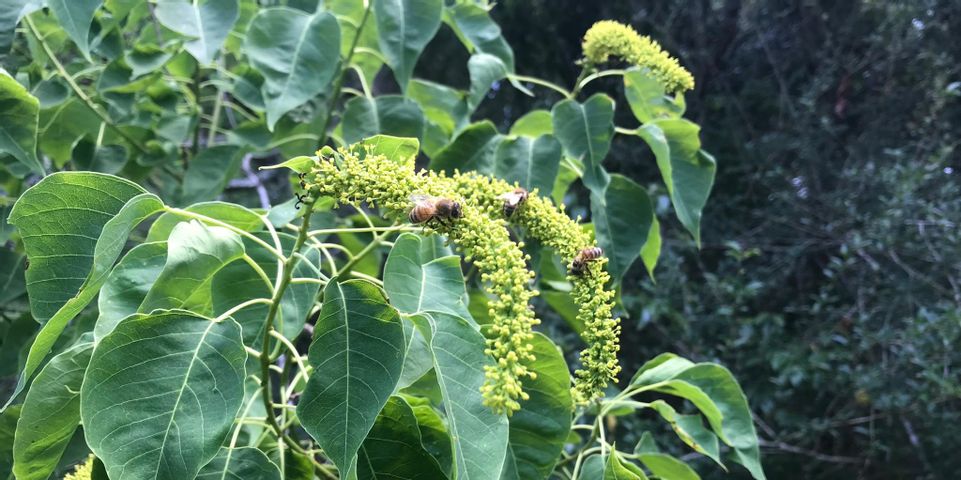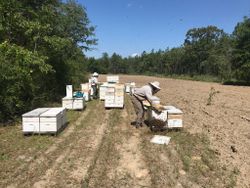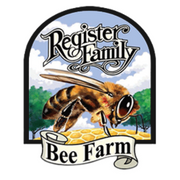
Honey is used as a natural sweetener in a variety of products on the market as well as bottled and sold in stores around the world. As a natural product of bees, we’ve come to rely on this golden, rich drizzle and the nutrients it provides. However, bees have a higher purpose on Earth and are a key part of healthy ecosystems around the world. Here’s a closer look at why they’re vital to the planet and how you can help them.
Why Are Bees Important?
Bees have the crucial role of pollinator. As they fly from flower bud to flower bud, drinking up the nectar, they carry with them the pollen necessary for plants and flowers to keep reproducing. Without bees pollinating the food we rely on, our diets would be blander and less nutritious. Even more importantly, many of the foods we consume would no longer exist.
With more than 20,000 bee species worldwide, each of them has a unique purpose. The size of a honeybee, specifically the length of their straw-like tongue called the proboscis, is often the reason some bees pollinate one plant over another. For example, garden bumblebees are better for pollinating honeysuckles and foxgloves as they can access the nectar in the long, tubular blooms, while honeybees, due to their much larger colony size, are more effective for pollinating cherry, almond, and melon blooms. Dietary staples such as wheat, corn, and rice are largely wind pollenated, but 80 percent of the world’s flowering plants rely on honeybees and other animals for pollination.
Are Bees in Danger?
 Bee populations around the world, including the United States, have been on the decline. One of the leading causes is the varroa destructor mite. This pesky little mite has severely impacted the mortality rate of feral and kept bees alike. Unfortunately, the feral colonies don’t fare well without the help of beekeepers in managing the mite load in the hive. The feral bee population has been in steep decline, and without beekeepers willing to keep these wonderful creatures healthy, the outlook for our pollinator friends would be grim. Other factors, such as the loss of natural habitat and the industrialization of agriculture habits, particularly monoculture planting of crops that provide no benefit to the bees, have contributed as well. With a limited habitat and loss of plant biodiversity, bees are incapable of finding enough nectar to feed their colonies and produce honey. This often leads to a rapid decline of the bee population in a given area.
Bee populations around the world, including the United States, have been on the decline. One of the leading causes is the varroa destructor mite. This pesky little mite has severely impacted the mortality rate of feral and kept bees alike. Unfortunately, the feral colonies don’t fare well without the help of beekeepers in managing the mite load in the hive. The feral bee population has been in steep decline, and without beekeepers willing to keep these wonderful creatures healthy, the outlook for our pollinator friends would be grim. Other factors, such as the loss of natural habitat and the industrialization of agriculture habits, particularly monoculture planting of crops that provide no benefit to the bees, have contributed as well. With a limited habitat and loss of plant biodiversity, bees are incapable of finding enough nectar to feed their colonies and produce honey. This often leads to a rapid decline of the bee population in a given area.
How Can You Help?
To help the bees in your area, consider planting some native plants in your spring flower beds or gardens. Avoid using harsh pesticides and insecticides in your fruit and vegetable gardens to prevent further harm to bees. If you have to use these for pests, do some research about the products on the market to find those that are safe to use around a bee population. Bees require water to help regulate the temperature and humidity of the hive in the heat of summer, so put out some dripping bottles or containers of water in your garden to give them easy access as they do their essential work. The most important thing you can do is to take up beekeeping or support those that do. Buy honey and other hive products, or, if space permits, consider allowing beekeepers to keep colonies on your land. Do what you can to ensure that honeybees will continue to do their amazing work for many years to come.
Honey is a delicious treat, but its production could be in decline along with the bee population. However, Register Family Farm in Freeport, FL, is making a difference with their 1,200 colony honeybee farm. Since 2013, this veteran-owned, family-operated farm has been making premium honey and handcrafted products, including candles, soaps, and lip balms. To find out more about their honey gift baskets and their mission, call (850) 299-2321. Learn more about their products online.
About the Business
Have a question? Ask the experts!
Send your question

